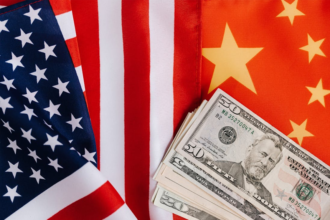There is a huge mineral deposit under the ground in the small town of Eneabba, which is three hours north of Perth. It looks like nothing special, yet it is full of rich minerals. This huge pile of minerals, called rare earths, is very important for making electric cars, wind turbines, and defense systems. Australia is putting a lot of money into these resources to try to break China’s near-total stranglehold over the global rare earths market. But can Australia change this important supply chain when China has been in charge for decades?
- Why are rare earths so important?
- How has China’s control changed the world markets?
- Can Australia’s investment in rare earths hurt China’s market?
- How is the Australian government helping the industry?
- Will mining rare earths in Australia be bad for the environment?
- Final Thoughts: Can Australia change the global rare earths market?
Why are rare earths so important?
There are 17 elements in rare earths that are very important for modern technology. They are light, heat-resistant, and long-lasting, which makes them essential for many high-tech uses, including as electric motors in cars and parts in defense equipment. The word “rare” makes it sound like these minerals are hard to find, but they’re not. They’re just hard to mine and process, and a few countries dominate the supply chain.
In reality, China now controls the world’s supply of rare earths, even though Europe used to be the leader in production. It owns more than half of the world’s rare earth mining and almost 90% of the processing. This makes it a major player in the green energy and defense industries. Here is the link to our article on Gold Coast Helicopter Crash.
How has China’s control changed the world markets?
During the trade conflicts between the U.S. and China, it was clear that China had a monopoly. Beijing used rare earths as a strategic tool to affect manufacturers around the world. Ford, for instance, had to stop making its popular Explorer SUV because there weren’t enough rare earths available because of trade restrictions. This event showed how weak global industries are that depend on these important commodities.
Because of this, countries like the U.S. and the European Union have been racing to locate new sources of rare earths, which has sparked a renewed interest in developing new supply chains. This is where Australia comes in.
Can Australia’s investment in rare earths hurt China’s market?
Australia is trying to break China’s stranglehold on rare earths by making a big investment in mining and processing. Iluka Resources, a mining company based in Western Australia, got a loan from the government for A$1.65 billion (about US$1 billion) to develop a new refinery that can process rare earths like dysprosium and terbium. These minerals are important for making electric car motors and other high-tech things.
Iluka used to be a company that mined zircon, but now it is changing its focus to make money from the byproducts of its mineral sands. The corporation has a stockpile of more than $650 million in rare earths and wants to fulfill rising demand, which is expected to rise by as much as 170% by 2030. Here is the link to our article on Trade Tensions Drive Gold.
How is the Australian government helping the industry?
The Australian government has made a big financial commitment to the rare earths project to make it work financially. Iluka says that without this relationship with the government, it would be impossible to build a viable rare earths sector. Within two years, the refinery should be up and running. The long-term goal is to make sure that there is a stable supply of these important minerals without having to rely on China.
Will mining rare earths in Australia be bad for the environment?
Australia will have to deal with a big problem: the environmental damage caused by processing rare earths. It is not hard to extract minerals, but refining them is considerably harder and can make dangerous waste, including radioactive elements. Australia, on the other hand, has set up systems and laws to deal with this kind of trash in a responsible way. In some other nations, weak environmental laws have caused a lot of pollution.
Even with these problems, Australia is trying to become a cleaner, more reliable source of rare earths. This is appealing to businesses in the U.S. and Europe who want to find other sources outside China.
Final Thoughts: Can Australia change the global rare earths market?
Australia’s billion-dollar investment in mining and processing rare earths is a strategic move to take on China’s dominance in this important field. Australia wants to become a major role in the rare earths supply chain by using its many natural resources and developing new refining technologies. Australia’s role in the global market will become more and more significant as the need for green technologies and defense equipment grows. Australia will be a safe and long-lasting alternative to China’s monopoly.








